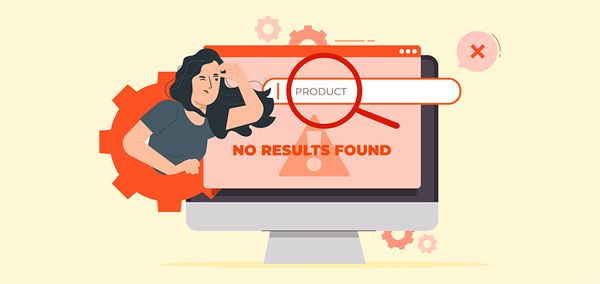Bookkeeping Basics for Small Businesses & Dropshippers

Starting your own business can be a thrilling experience. Sure, you may be working long hours, but that sense of getting something off the ground and watching it fly? There’s no other feeling quite like it.
But hold on; let’s return to Earth for just one second. When you have so many ideas in your head, it’s easy to overlook the basics. And there’s no more crucial business process to establish from the start than getting the books right. This article will explain bookkeeping and give you a few tips for implementing it effectively.
What Is Bookkeeping
Bookkeeping is the backbone of any successful enterprise. It involves tracking all your business income and expenses so that you have a detailed record of your financial position. It is essential because it’s the only way to meet your legal responsibilities.
When it comes time to pay your online sales tax or produce an annual report, you’ll need to know exactly how much money has been flowing in and out. It’s also absolutely vital for having a handle on how your business is performing. It’s difficult to plan for the future if you don’t have a clear idea of how things are working out in the present.
So if you’re new to all this, here are a few of the basics explained.
How to Get Started with Small Business Bookkeeping
There’s much to consider when setting up a dropshipping or other small business. Should you create your website with a template or outsource it to a website developer? How do you integrate with AliExpress? Which payment software is the best fit? Do you need an SMB VoIP solution for customer support? Weighing up all the options can seem like an endless task.
Luckily, making decisions about bookkeeping is straightforward. Whether you decide to hire outside expertise to do it for you or begin by doing it yourself, there are some ideas you should know.
Choose Your Bookkeeping System
There are two systems to choose from: single-entry or double-entry bookkeeping. Single-entry involves making notes of each transaction only once, so is the basic approach. For smaller, simpler businesses such as those run by sole proprietors, this can work.
However, any business more complex than that should be looking at double-entry bookkeeping. This is where each transaction is recorded in two places: once as a debit and once as a credit. So, for example, if you buy a printer for your business for $500, you would record that $500 as a debit in your equipment account and as a credit in your cash account.
The advantage of double-entry bookkeeping is that it’s much easier to spot mistakes. Since every amount of money debited is matched by an amount credited in another account, when you add everything up, it should come out equal—which is what balancing the books means.
Choose Your Accounting Method
With financial accounting, inventory is only part of the picture. Before you start focusing on this kind of detail, there’s a crucial decision to be made at the beginning. It will inform how your accounts are processed, and it’s this: will you be accounting on a cash basis or accrual?
With cash basis accounting, you record each transaction when the cash is actually received or paid. So when you send out an invoice that is paid 30 days later, that would be the point where you record it in the ledger. On the other hand, with the accrual method, you record transactions when they are generated rather than paid. In this case, when the invoice was made and sent out.
For most small businesses, cash basis accounting is the simpler way to go. For instance, all your taxes will be paid based on how much money you have received—which means that late paying clients are less of a problem.
It’s important to note though, that some businesses are legally required to use the accrual method. The IRS makes it compulsory for any businesses dealing in manufacturing or inventory, so ensure to check your legal position.
Create Your General Ledger
The file you record all the transactions in is called your general ledger. It could be in a simple spreadsheet or a dedicated bookkeeping or accounting software package. Every payment given or received should be entered into the ledger.
If you use a software solution, you’ll find that it generates a ledger for you automatically. It is becoming an ever more popular option because these packages have been developed to integrate well with your bank account and other financial records. It keeps things wonderfully simple. It also frees you up to focus on more creative tasks like product development or brand messaging.
Start Creating Your Accounts
In your general ledger, you’ll have several different accounts where you record transactions. The exact mixture of account types will vary depending on the nature of your business but will typically include:
- Assets (things your business owns e.g., equipment)
- Liabilities (debts owed e.g., business loans)
- Revenue (money in)
- Expenses (money out)
- Equity (owner’s interest in the business e.g., shares)
It’s a good idea to take a CPA’s advice when starting so you get your ledger set up with the appropriate accounts.
Record Every Transaction
It seems obvious, but we can’t repeat this often enough. It’s vital not to let this slide. Enter all transactions into the ledger as soon as possible.
As we’ve mentioned, using a software solution can make this easier because the software will draw down your bank data and populate your accounts automatically. If you decide to use a spreadsheet, you’ll need to enter all the data yourself, of course.
Tips for Successful Small Business Bookkeeping
Here are a few handy hints to help you get off to a good start.
Keep Your Business and Personal Transactions Separate
Just as you wouldn’t necessarily choose the best text messaging service for business owners for use with your personal cell phone, so it goes with finances. Never mix up your personal and business accounts.
Be Ready for Unexpected Expenses
It’s wise to have an emergency fund for sudden large expenses. You don’t want your business to get in trouble if you suddenly need to replace a core item of equipment and don’t have the cash set aside for it.
Keep Important Records Backed up
Data failures happen. If you don’t have your business information backed up, what should be a minor setback can turn into a nightmare fast. Lost data can mean missed deadlines or even lawsuits from unhappy customers or prosecution by the IRS.
All of a sudden, you’re looking at signing a debt settlement agreement and wondering where on Earth it all went wrong. Make sure you have your records backed up in at least one location—preferably more.
Plan Ahead
Make sure you are familiar with the financial calendar. Good bookkeeping is an excellent foundation for a successful business, but it’s not enough on its own. You need to be aware of when large expenses such as tax bills are looming so you can work around them.
Get Started Today
Whether you decide to outsource your bookkeeping to an accounting firm or a freelancer—or simply decide to do it yourself—you need to give it some careful thought from the outset.
With conscientious cross-checking and regular self-audits, you should be on the right track.
Bookkeeping can seem intimidating at first, but once you’ve got your system in place, you’ll get used to it very quickly. And that means you’ll be able to focus on what you really enjoy—growing that business!
Author Bio:

Jessica Day is the Senior Director for Marketing Strategy at Dialpad, a modern business communications platform that takes every kind of conversation to the next level—turning conversations into opportunities via Dialpad voice over internet phone system.
Jessica is an expert in collaborating with multifunctional teams to execute and optimize marketing efforts, for both company and client campaigns. Here is her LinkedIn.












 Company
Company
 Why Choose DSers
Why Choose DSers
 Blog
Blog
 Help Center
Help Center




 Live Chat
Live Chat